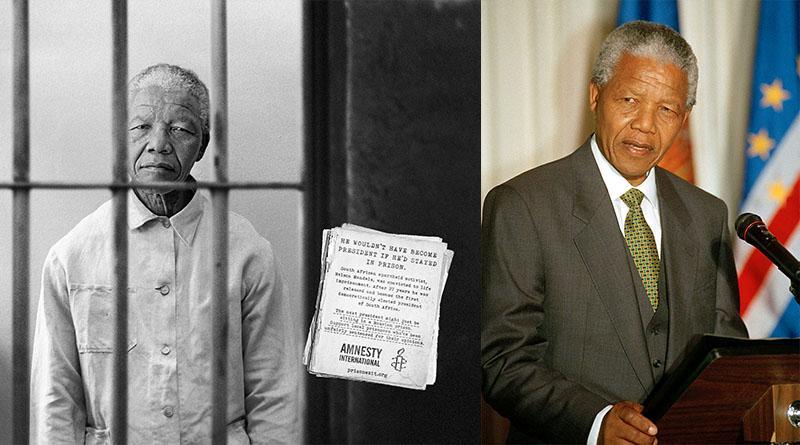
Early Life and Education
Nelson Rolihlahla Mandela was born on July 18, 1918, in the village of Mvezo in Umtata, then part of South Africa's Cape Province. He belonged to the Thembu royal family of the Xhosa-speaking people. Mandela was the first in his family to attend school, where his teacher gave him the English name "Nelson."
He went on to study law at the University of Fort Hare and later at the University of Witwatersrand, where he became involved in the anti-colonial and African nationalist movement.
Anti-Apartheid Activism
Mandela became a founding member of the African National Congress (ANC) Youth League in 1944. As apartheid laws became more severe, Mandela and his colleagues organized non-violent protests, strikes, and defiance campaigns against racial discrimination.
In 1961, after peaceful resistance had failed to bring change, Mandela co-founded the ANC’s armed wing, Umkhonto we Sizwe, and began a campaign of sabotage against government targets.
Imprisonment (1962–1990)
Mandela was arrested and sentenced to life imprisonment in 1964 for his role in anti-apartheid activities. He spent 27 years in prison, most of them on Robben Island, enduring harsh conditions but becoming a global symbol of resistance to racial oppression.
Despite being behind bars, Mandela’s reputation grew. The global "Free Mandela" campaign became a powerful symbol of resistance to apartheid, and pressure mounted on the South African government.
Release and Presidency
Mandela was released on February 11, 1990, by then-President F.W. de Klerk, as part of efforts to dismantle apartheid. Mandela led negotiations that resulted in the first multiracial elections in 1994, where he was elected as South Africa’s first Black president.
His presidency marked a new era of reconciliation. Rather than seeking revenge, Mandela focused on healing the nation through the Truth and Reconciliation Commission, chaired by Archbishop Desmond Tutu.
Legacy and Global Impact
After stepping down in 1999, Mandela became a respected elder statesman and continued to fight for peace and human rights through the Nelson Mandela Foundation.
He received over 250 awards, including the Nobel Peace Prize in 1993. Mandela passed away on December 5, 2013, but his legacy endures.
He remains a symbol of forgiveness, resilience, and the enduring fight for justice.
Quote:
“I have walked that long road to freedom… I have taken a moment here to rest, to steal a view of the glorious vista that surrounds me… But I can only rest for a moment, for with freedom comes responsibilities.”
— Nelson Mandela

You must be logged in to post a comment.